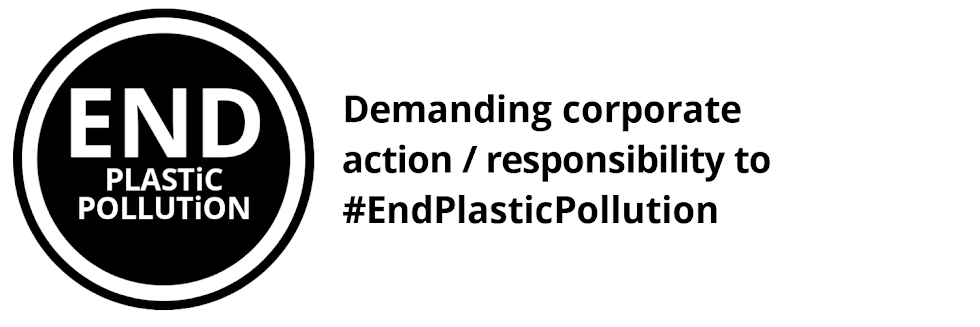A sample brand check on Plastics found in Lake Victoria exposes companies that are ignoring to #EndPlasticPollution.
The great “Nalubaale” known as Lake Victoria is Africa’s largest fresh water body, world’s largest tropical lake and the world’s second largest fresh water lake. Its beautiful waters are the source of the River Nile, home to the Tilapia (Engege) and the Nile Perch (Empuuta), Mukene (Silver Fish) among other marine life only unique to Lake Victoria. Apart from good view sandy beaches, an amazing adventure awaits one to discover the truth in stories about the Islands of Kalangala.
The lake today is responsible for the development of the Great Lakes Region economies of Rwanda, Uganda, Kenya and Tanzania. We all rely on this lake for domestic use, Fishing, Irrigation (Agriculture), production of beverages and basic use commodities and generating electricity. As the source of River Nile, the lake is giving water to sustain over 250 million people along the Nile and tributaries in Uganda, South Sudan, Ethiopia, Sudan and Egypt.
Plastic Pollution in Uganda
Just like in other countries, plastics have become useful in Uganda for both high incomes earners and those with low incomes. Plastics is now component to all basic use materials in every home in Uganda. It’s also no surprise that as the US pushes Kenya into an illicit plastics trade to make it dumping site, Uganda at the same time is giving way for production of more plastics. This is due to the move by big Oil companies that have decided to invest in plastics production. Through the President, the government of Uganda has made it clear that Oil in Uganda will be used to boost manufacturing of plastics for regional consumption. This is also an effort to reduce the plastics manufacturing materials import burden of Uganda. Now that it is the same corporations and countries pushing the deal, other Sub-Saharan countries still excited with new oil discoveries will not be able to resist.
Plastic Pollution in Lake Victoria.
This World Clean Up Day 2020, together as Fridays For Future Uganda activists we collected plastic waste the from shoreline covering the entire Ggaba Landing Site. We collected waste including plastic packaging for beverages, fishing equipment, discarded (personal protective equipment) masks and used gloves among others. It’s also unfortunate that the Ggaba market doesn’t have a waste collection service. Locals say that the little managed to be collected by the city authority isn’t enough and regular. They are left with no choice but to dump the waste in the Lake.
A discarded fishing net, trapped and killed young Tilapia fish.
Who are the polluters?
We all agreed that the people of Ggaba and other communities must be sensitized about waste disposal and how to deal with plastics. However this burden can not be left for us individuals to clean up the mess of companies that promised us a world without waste. Plastic pollution from companies is fueling emissions, 60% of waste packaging from big brands in developing nations causing climate heating/climate crisis. Now that they want to turn Kenya into an entry point of flooding Africa with plastics, Lake Victoria stands out to be at a high risk of being used as a dumping site.
Through the #EndPlasticPollution Campaign, this is the 18th brand exposure done at Lake Victoria, you read more of the #PlasticPollutersXposed series on this blog.
1- Coca-Cola
2- PepsiCo
3- Mirinda
4- Fanta
5- Yaket Water
6- Ice Water
7- Romi Wine
8- Ambiance Waragi.
Others;
9. Mukwano industries
10. Bidco.
11. Afro plastics.
12. Uganda Breweries Limited.
What must be done.
1. Companies must take action to #EndPlasticPollution
This World Clean Up Day, corporations made it clear that they will do nothing to #EndPlasticPollution and the burden is left for us individuals. On this day an advert on Twitter done by Stanbic Bank (@stanbicug) backed up the “Tweyongye” Campaign by KCCA (Kampala Capital City Authority) and Coca-Cola, environmental Organizations and other “corporate sponsors”. The advert goes “ Separate plastics from other waste, do your part. Throw it the bin”.
This advert is no different from the famous “Keep America Beautiful” advert by Coca-Cola in the US. This kind of communication is what corporations are using to green wash us. They always say it our problem not to manage the waste. But they deny the fact that they create this waste. They forget that they promised us a world without waste.
2. A No-plastic Attitude.
Businesses must develop a No-plastic attitude and a change in perspective on CSR (Corporate Social Responsibility) Businesses must learn to take on CSR as part of their working strategy. A No-plastic attitude can help trigger the company to innovative and change it’s product designs. This opens up for change in nature of business and new markets to serve. The approach can also help the business achieve it’s social, economic and desired environmental impact as it steps into spaces where it can make profits as it solves problems.
3. More awareness is needed.
People should understand that they have power to demand corporate action to #EndPlasticPollution. Individual and community action against plastic pollution is important. It is also important that consumers regain their sovereignty to make choices on how best their favorite products are presented/manufactured for them.
“Todays plastic problem affects everyone. It isn’t a your problem and not my problem. It’s not one country’s problem. It’s every one’s problem” said Winnie Lau an ocean expert.
Thank you for reading, feel free to share this article, let's spread the message.
As published by Nirere Sadrach on The Climate Watch Series blog.
Twitter: twitter.com/sadrachnirere
Facebook: https://facebook.com/sadrach256
LinkedIn: https://www.linkedin.com/in/nirere-sadrach-profile


Thanks blogger!
ReplyDeleteI want to know plastic injection molding manufacturer.